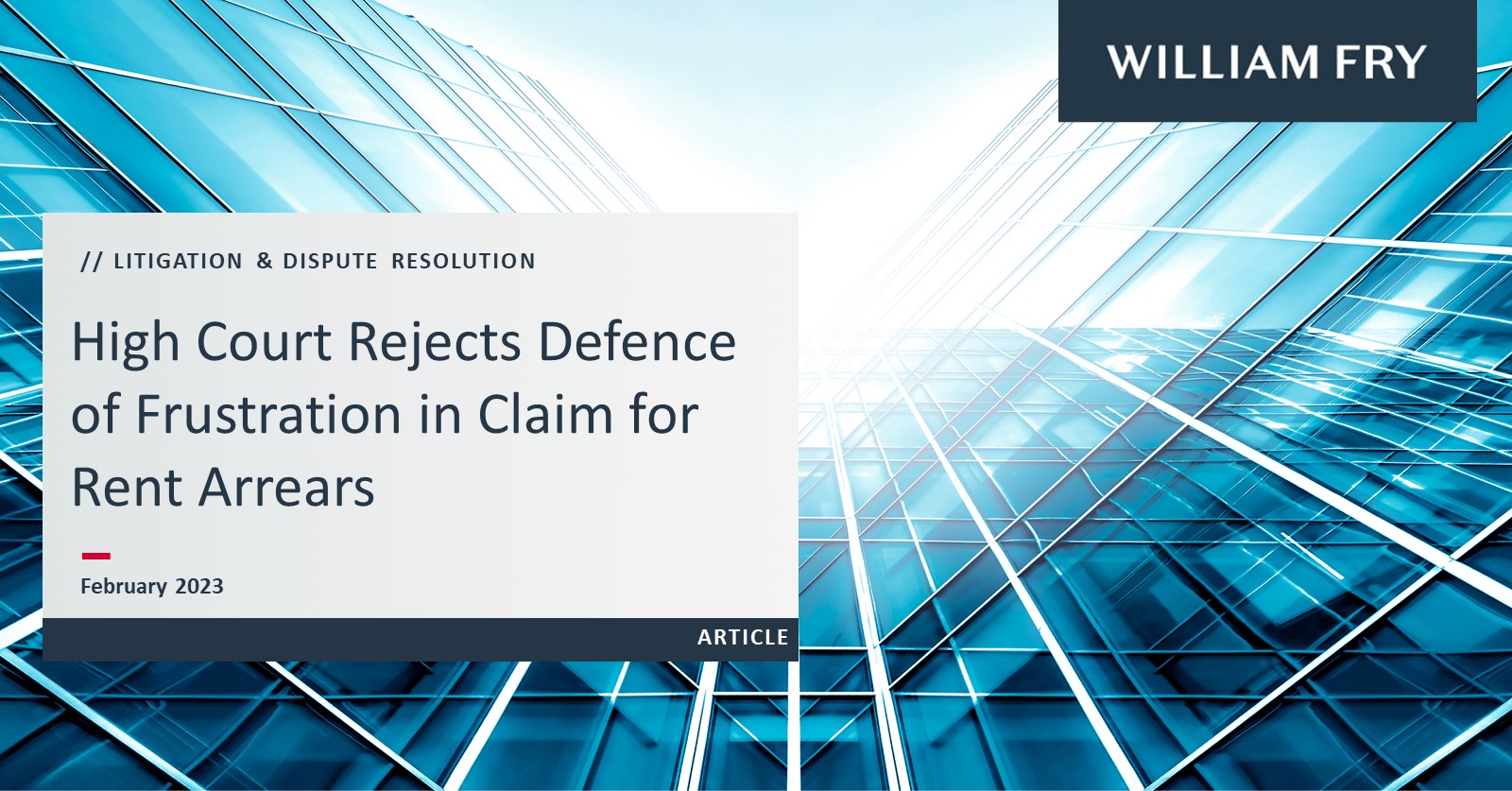The plaintiff, Kenneth Treacy (Mr Treacy), was landlord and owner of 45 Oliver Plunkett Street, Cork and the ground floor of 9 Marlboro Street, Cork (Premises).
Mr Treacy had a lease agreement with the first named defendant for a yearly rent of €222,500 which the second named defendant guaranteed.
Application for Summary Judgment
Mr Treacy claimed that the first defendant, Lee James Menswear Ltd (Lee James), had failed, contrary to the lease, to pay rent and insurance premia due.
Following a part payment by Lee James, the sum of €143,101.42 was due and owing to Mr Treacy on 1 December 2020. By 1 June 2021, this sum increased to €257,224.09. This figure was made up of both insurance due and rent arrears for the period of 1 March 2020 to 30 June 2021. Mr Treacy applied to the High Court (Court) seeking summary judgment for rent arrears and unpaid insurance premia.
Defence of Frustration
The second named defendant, James O’Regan, criticised the level of rent against the background of a significant downturn in economic conditions. The Court noted that this did not amount to a defence at law and that the lease was a commercial arrangement entered into freely by both parties.
The substantive defence put forward by the defendants was frustration of the contract due to the strict Covid-19 Regulations. They submitted that because of the regulations they were prevented from using the premises as a retail outlet. The defendants claimed that this amounted to frustration of the contract, thereby relieving the first defendant of its obligation to pay rent and other amounts under the lease.
The Court noted that the restrictions were only in place for as long as the Covid-19 regulations were in force, and so the frustration was temporary in nature. The Court considered Footlocker Retail Ireland Ltd v. Percy Nominees Ltd [2021] IEHC 749 where O’Moore J held that Footlocker had failed to establish that there had been any partial discharge of severable obligations, including the obligation to pay rent, in the context of the Covid-19 pandemic. The Court further held that partial frustration is not a legal concept applied by the courts in Ireland.
The Court also referred to the decision in Oysters Shuckers Ltd T/A Klaw v. Architecture Manufacture Support (EU) Ltd and Anor [2020] IEHC 527, a case involving the effect of the Covid-19 regulations. In that case, Sanfey J held that the obligation to pay rent is an “integral and indeed fundamental” part of the lease agreement, and that a plaintiff cannot argue that the rent obligation is frustrated while claiming that the lease itself remains valid.
Decision
The Court held that the authorities were overwhelmingly against the defendants’ defence of partial frustration. Though it may be argued that the doctrine of frustration is an evolving one, the Court held that the contention by Lee James that it was discharged of its obligation to pay rent for so long as the Covid-19 regulations were in force had no basis in law.
The Court held that Mr Treacy was entitled to recover the sums sought from the first defendant and James O’Regan as the guarantor.
Treacy v Lee James Menswear and James O’Regan [2022] IEHC 600
Contributed by Joanne Ryan & Kate Abell



